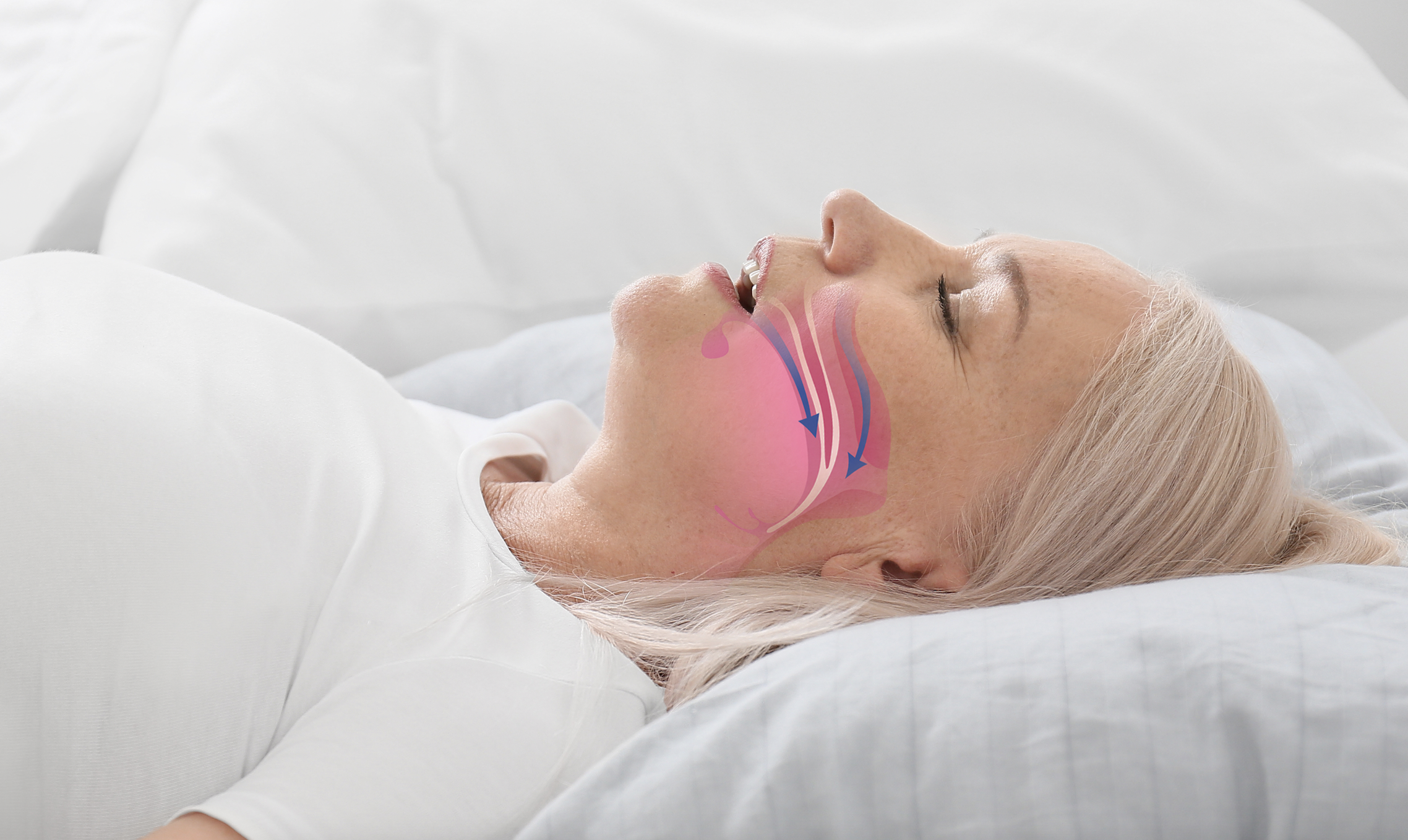“Sleep apnea is just snoring.”
…IS FALSE. Snoring can be a symptom of the sleep disorder, but there’s a BIG difference between the two.

Sleep apnea is no joke; it’s a health issue that has been linked to quality of life and heart health problems. Patients with Obstructive Sleep Apnea (OSA) actually stop breathing up to 400 times throughout the night. The struggle to get high-quality sleep in turn affects their ability to regenerate, keep their organs healthy, and leads to early aging. Depending how severe the OSA is, it can make it hard to sleep at all.
Sleep apnea affects approximately 18 million adults in the United States. Luckily, Dr. Tadros is here to help.
“There are a number of things that can contribute to obstructive sleep apnea, that’s what makes it a bit complicated,” explains Dr. Tadros. “When we talk about snoring, it’s a noise, and that noise comes from vibration, and vibration comes from anything along the pathway of how we breathe. If we’re not breathing properly through the throat, then we’re going to get a lot of resonance. If the nose is blocked, we might even open our mouth during sleep. Opening our mouth and breathing excessively through our mouth, there’s going to be more resonance or vibration through the back of the throat – and it’s going to sound a lot louder.”
“If there’s a lot of noise during sleep, that draws our attention to the fact that there might be a problem. You may just be snoring, but more likely there may be some component of sleep apnea developing. So while there may be a number of conditions associated with snoring and sleep apnea, there are also a number of surgical and non-surgical options able to treat these conditions.”
Obstructive Sleep Apnea Is a Treatable Condition
Bad sleep quality has been linked to low performance at work, moodiness, and even shorter lifespans. You owe it to yourself and your partner to seek out treatment for your sleep. Dr. Monica Tadros specializes in sinus and sleep quality treatments at the Center for Sinus, Sleep, and Facial Plastic Surgery, so coming to us might just be the best way to ensure better nights’ sleep. Call our office in NYC: (201) 408-5430 or NJ: (201) 408-5430 to schedule a consultation.

